Lookahead Limiter designed for low distortion.
It's not as fancy as Pro-L but it does the trick.
Oversample it for True Peak limiting.
Stereo Only
CPU: (0.2%)
*Important warning: DAW latency correction!
The latency changes depending on attack time in this script, but in hise it's common to report a single latency value to the host. The solution to this is to either report the max latency to the host (measure from the max attack time), or to leave the attack time fixed, so that you can report a single latency value that won't change. You should be fine leaving it at 1 - 10 ms. A bit of attack (lookahead) is needed for smooth limiting.
Download the script here:
https://1drv.ms/u/c/6c19b197e5968b36/EQFgIcgl83VJviZoznFZWnEBleCXFfAD-KejdhTV9Q6IwQ?e=EyH8fM
Setup tutorial:
1. Create a 3rd party C++ node in HISE named "Griffin_Limiter"
2. Compile the initial DLL in HISE using "Compile dsp networks as .dll"
3. Replace the generated "Griffin_Limiter.h" (located in ProjectName/DspNetworks/ThirdParty) with my limiter header file
4. Re-compile the final DLL in HISE using "Compile dsp networks as .dll"
https://youtu.be/wnUICEij4Rs
Ignore the audio artefacts in the video. My encoder is being a fool. The sound quality of the dsp is fine.
You can read the script here:
Griffin_Limiter.h:
#pragma once
#include <JuceHeader.h>
#include <cstdint>
#include <cmath>
#include <vector>
#include <algorithm>
#include <limits>
#include <cstring>
/**
==============| by GriffinBoy (2025) |==============
This node implements a Lookahead Stereo Limiter
Features:
- ExpSmootherCascade: Four-stage exponential smoothing with separate attack and release coefficients.
- PeakHoldCascade: Eight-stage peak detection cascade for accurate envelope following.
- Integrated lookahead
- Parameter smoothing
Integration Steps for HISE:
1. Create a 3rd party C++ node in HISE named " Griffin_Limiter "
2. Compile the initial DLL in HISE using "Compile dsp networks as .dll"
3. Replace the generated "Griffin_Limiter.h" (located in ProjectName/DspNetworks/ThirdParty) with this header file you are reading now
4. Re-compile the final DLL in HISE using "Compile dsp networks as .dll"
Author: GriffinBoy (2025)
License: UwU
Based on the following paper:
Sanfilippo, D. (2022).Envelope following via cascaded exponential smoothers for low - distortion peak limiting and maximisation.In Proceedings of the International Faust Conference, Saint - Étienne, France.
*/
namespace project
{
#ifndef M_PI
#define M_PI 3.14159265358979323846
#endif
using namespace juce;
using namespace hise;
using namespace scriptnode;
namespace FunctionsClasses {
//------------------------------------------------------------------------------
// DelaySmooth: A delay line with smooth crossfading between two integer delay
// lines to produce a click-free, Doppler-free delay variation.
// Fixed types: head = uint16_t and sample type = float.
class DelaySmooth {
private:
const size_t bufferLen = 2ul << (8 * sizeof(uint16_t) - 1);
size_t delay = 0;
size_t interpolationTime = 1024;
size_t lowerDelay = 0;
size_t upperDelay = 0;
float interpolation = 0.0f;
float interpolationStep = 1.0f / float(interpolationTime);
float increment = interpolationStep;
uint16_t lowerReadPtr = 0;
uint16_t upperReadPtr = 0;
uint16_t writePtr = 0;
std::vector<float> bufferLeft;
std::vector<float> bufferRight;
public:
void SetDelay(size_t _delay) { delay = _delay; }
void SetInterpolationTime(size_t _interpTime) {
interpolationTime = std::max<size_t>(1, _interpTime);
interpolationStep = 1.0f / float(interpolationTime);
}
void Reset() {
std::fill(bufferLeft.begin(), bufferLeft.end(), 0.0f);
std::fill(bufferRight.begin(), bufferRight.end(), 0.0f);
}
void Process(float** xVec, float** yVec, size_t vecLen) {
float* xLeft = xVec[0];
float* xRight = xVec[1];
float* yLeft = yVec[0];
float* yRight = yVec[1];
for (size_t n = 0; n < vecLen; n++) {
bufferLeft[writePtr] = xLeft[n];
bufferRight[writePtr] = xRight[n];
bool lowerReach = (interpolation == 0.0f);
bool upperReach = (interpolation == 1.0f);
bool lowerDelayChanged = (delay != lowerDelay);
bool upperDelayChanged = (delay != upperDelay);
bool startDownwardInterp = (upperReach && upperDelayChanged);
bool startUpwardInterp = (lowerReach && lowerDelayChanged);
float incrementPathsUp[2] = { increment, interpolationStep };
float incrementPathsDown[2] = { incrementPathsUp[startUpwardInterp], -interpolationStep };
increment = incrementPathsDown[startDownwardInterp];
size_t lowerDelayPaths[2] = { lowerDelay, delay };
size_t upperDelayPaths[2] = { upperDelay, delay };
lowerDelay = lowerDelayPaths[upperReach];
upperDelay = upperDelayPaths[lowerReach];
// Use explicit bitwise AND for modulo (bufferLen = 65536)
lowerReadPtr = static_cast<uint16_t>(writePtr - lowerDelay) & 0xFFFF;
upperReadPtr = static_cast<uint16_t>(writePtr - upperDelay) & 0xFFFF;
writePtr++;
interpolation = std::max(0.0f, std::min(1.0f, interpolation + increment));
yLeft[n] = interpolation * (bufferLeft[upperReadPtr] - bufferLeft[lowerReadPtr]) + bufferLeft[lowerReadPtr];
yRight[n] = interpolation * (bufferRight[upperReadPtr] - bufferRight[lowerReadPtr]) + bufferRight[lowerReadPtr];
}
}
DelaySmooth() {
bufferLeft.resize(bufferLen);
bufferRight.resize(bufferLen);
}
DelaySmooth(size_t _delay, size_t _interpTime) {
bufferLeft.resize(bufferLen);
bufferRight.resize(bufferLen);
delay = _delay;
interpolationTime = std::max<size_t>(1, _interpTime);
interpolationStep = 1.0f / float(interpolationTime);
}
};
//------------------------------------------------------------------------------
// ExpSmootherCascade: Cascaded one-pole exponential smoothers (4 stages)
// with separate attack and release coefficients.
class ExpSmootherCascade {
private:
static constexpr size_t stages = 4;
const float coeffCorrection = 1.0f / std::sqrt(std::pow(2.0f, 1.0f / float(stages)) - 1.0f);
const float epsilon = std::numeric_limits<float>::epsilon();
float SR = 48000.0f;
float T = 1.0f / SR;
const float twoPiC = 2.0f * static_cast<float>(M_PI) * coeffCorrection;
float twoPiCT = twoPiC * T;
float attTime = 0.001f;
float relTime = 0.01f;
float attCoeff = std::exp(-twoPiCT / attTime);
float relCoeff = std::exp(-twoPiCT / relTime);
float coeff[2] = { relCoeff, attCoeff };
float output[stages] = { 0.0f, 0.0f, 0.0f, 0.0f };
public:
void SetSR(float _SR) {
SR = std::max(_SR, 1.0f);
T = 1.0f / SR;
twoPiCT = twoPiC * T;
}
void SetAttTime(float _attTime) {
attTime = std::max(epsilon, _attTime);
attCoeff = std::exp(-twoPiCT / attTime);
coeff[1] = attCoeff;
}
void SetRelTime(float _relTime) {
relTime = std::max(epsilon, _relTime);
relCoeff = std::exp(-twoPiCT / relTime);
coeff[0] = relCoeff;
}
void Reset() { std::memset(output, 0, sizeof(output)); }
void Process(float* xVec, float* yVec, size_t vecLen) {
for (size_t n = 0; n < vecLen; n++) {
float input = xVec[n];
// Unrolled stage 0
bool isAttackPhase = (input > output[0]);
float coeffVal = isAttackPhase ? attCoeff : relCoeff;
output[0] = input + coeffVal * (output[0] - input);
input = output[0];
// Unrolled stage 1
isAttackPhase = (input > output[1]);
coeffVal = isAttackPhase ? attCoeff : relCoeff;
output[1] = input + coeffVal * (output[1] - input);
input = output[1];
// Unrolled stage 2
isAttackPhase = (input > output[2]);
coeffVal = isAttackPhase ? attCoeff : relCoeff;
output[2] = input + coeffVal * (output[2] - input);
input = output[2];
// Unrolled stage 3
isAttackPhase = (input > output[3]);
coeffVal = isAttackPhase ? attCoeff : relCoeff;
output[3] = input + coeffVal * (output[3] - input);
yVec[n] = output[3];
}
}
ExpSmootherCascade() {}
ExpSmootherCascade(float _SR, float _attTime, float _relTime) {
SR = std::max(_SR, 1.0f);
T = 1.0f / SR;
twoPiCT = twoPiC * T;
attTime = std::max(epsilon, _attTime);
relTime = std::max(epsilon, _relTime);
attCoeff = std::exp(-twoPiCT / attTime);
relCoeff = std::exp(-twoPiCT / relTime);
coeff[0] = relCoeff;
coeff[1] = attCoeff;
}
};
//------------------------------------------------------------------------------
// PeakHoldCascade: Cascaded peak-holders (8 stages fixed) to approximate a max filter.
// The cascade splits the hold time to detect secondary peaks.
class PeakHoldCascade {
private:
static constexpr size_t stages = 8;
float SR = 48000.0f;
float holdTime = 0.001f;
const float oneOverStages = 1.0f / float(stages);
size_t holdTimeSamples = std::rint(holdTime * oneOverStages * SR);
size_t timer[stages];
float output[stages];
public:
void SetSR(float _SR) {
SR = std::max(_SR, 1.0f);
holdTimeSamples = std::rint(holdTime * oneOverStages * SR);
}
void SetHoldTime(float _holdTime) {
holdTime = std::max(0.0f, _holdTime);
holdTimeSamples = std::rint(holdTime * oneOverStages * SR);
}
void Reset() {
std::memset(timer, 0, sizeof(timer));
std::memset(output, 0, sizeof(output));
}
void Process(float* xVec, float* yVec, size_t vecLen) {
for (size_t n = 0; n < vecLen; n++) {
float input = std::fabs(xVec[n]);
bool release;
// Unrolled stage 0
release = (input >= output[0]) || (timer[0] >= holdTimeSamples);
timer[0] = release ? 0 : (timer[0] + 1);
output[0] = release ? input : output[0];
input = output[0];
// Unrolled stage 1
release = (input >= output[1]) || (timer[1] >= holdTimeSamples);
timer[1] = release ? 0 : (timer[1] + 1);
output[1] = release ? input : output[1];
input = output[1];
// Unrolled stage 2
release = (input >= output[2]) || (timer[2] >= holdTimeSamples);
timer[2] = release ? 0 : (timer[2] + 1);
output[2] = release ? input : output[2];
input = output[2];
// Unrolled stage 3
release = (input >= output[3]) || (timer[3] >= holdTimeSamples);
timer[3] = release ? 0 : (timer[3] + 1);
output[3] = release ? input : output[3];
input = output[3];
// Unrolled stage 4
release = (input >= output[4]) || (timer[4] >= holdTimeSamples);
timer[4] = release ? 0 : (timer[4] + 1);
output[4] = release ? input : output[4];
input = output[4];
// Unrolled stage 5
release = (input >= output[5]) || (timer[5] >= holdTimeSamples);
timer[5] = release ? 0 : (timer[5] + 1);
output[5] = release ? input : output[5];
input = output[5];
// Unrolled stage 6
release = (input >= output[6]) || (timer[6] >= holdTimeSamples);
timer[6] = release ? 0 : (timer[6] + 1);
output[6] = release ? input : output[6];
input = output[6];
// Unrolled stage 7
release = (input >= output[7]) || (timer[7] >= holdTimeSamples);
timer[7] = release ? 0 : (timer[7] + 1);
output[7] = release ? input : output[7];
yVec[n] = output[7];
}
}
PeakHoldCascade() { Reset(); }
PeakHoldCascade(float _SR, float _holdTime) {
SR = std::max(_SR, 1.0f);
holdTime = _holdTime;
holdTimeSamples = std::rint(holdTime * oneOverStages * SR);
Reset();
}
};
//------------------------------------------------------------------------------
// Limiter: Lookahead peak-limiter combining DelaySmooth, PeakHoldCascade, and
// ExpSmootherCascade. Computes a stereo envelope and applies a gain to keep
// signal peaks below a given threshold.
template<typename real>
class Limiter {
private:
float SR = 48000.0f;
float T = 1.0f / SR;
const float twoPi = 2.0f * static_cast<float>(M_PI);
const float epsilon = std::numeric_limits<float>::epsilon();
const float smoothParamCutoff = 20.0f;
float attack = 0.01f;
float hold = 0.0f;
float release = 0.05f;
float dBThreshold = -6.0f;
float linThreshold = std::pow(10.0f, dBThreshold * 0.05f);
float dBPreGain = 0.0f;
float linPreGain = 1.0f;
float smoothPreGain = 0.0f;
float smoothThreshold = 0.0f;
float smoothParamCoeff = std::exp(-twoPi * smoothParamCutoff * T);
size_t lookaheadDelay = 0;
DelaySmooth delay;
static constexpr size_t numberOfPeakHoldSections = 8;
static constexpr size_t numberOfSmoothSections = 4;
const float oneOverPeakSections = 1.0f / float(numberOfPeakHoldSections);
PeakHoldCascade peakHolder;
ExpSmootherCascade expSmoother;
public:
void SetSR(float _SR) {
SR = std::max(_SR, 1.0f);
T = 1.0f / SR;
smoothParamCoeff = std::exp(-twoPi * smoothParamCutoff * T);
peakHolder.SetSR(SR);
expSmoother.SetSR(SR);
}
void SetAttTime(float _attack) {
attack = std::max(epsilon, _attack);
lookaheadDelay = std::rint(attack * oneOverPeakSections * SR) * numberOfPeakHoldSections;
delay.SetDelay(lookaheadDelay);
delay.SetInterpolationTime(lookaheadDelay);
expSmoother.SetAttTime(attack);
peakHolder.SetHoldTime(attack + hold);
}
void SetHoldTime(float _hold) {
hold = std::max(0.0f, _hold);
peakHolder.SetHoldTime(attack + hold);
}
void SetRelTime(float _release) {
release = std::max(epsilon, _release);
expSmoother.SetRelTime(release);
}
void SetThreshold(float _threshold) {
dBThreshold = std::max(-120.0f, _threshold);
linThreshold = std::pow(10.0f, dBThreshold * 0.05f);
}
void SetPreGain(float _preGain) {
dBPreGain = _preGain;
linPreGain = std::pow(10.0f, dBPreGain * 0.05f);
}
void Reset() {
delay.Reset();
peakHolder.Reset();
expSmoother.Reset();
}
// Process takes separate input and output stereo buffers.
// The design uses an in-place delay so the input buffer is overwritten.
void Process(float** xVec, float** yVec, size_t vecLen) {
// Get channel pointers once outside loops.
float* xLeft = xVec[0];
float* xRight = xVec[1];
float* yLeft = yVec[0];
float* yRight = yVec[1];
// Merge pre-gain smoothing and envelope computation.
for (size_t n = 0; n < vecLen; n++) {
smoothPreGain = linPreGain + smoothParamCoeff * (smoothPreGain - linPreGain);
xLeft[n] *= smoothPreGain;
xRight[n] *= smoothPreGain;
yLeft[n] = std::max(std::fabs(xLeft[n]), std::fabs(xRight[n]));
}
// Process envelope with peak-hold cascade.
peakHolder.Process(yLeft, yLeft, vecLen);
// Smooth and clip envelope to threshold.
for (size_t n = 0; n < vecLen; n++) {
smoothThreshold = linThreshold + smoothParamCoeff * (smoothThreshold - linThreshold);
yLeft[n] = std::max(yLeft[n], smoothThreshold);
yRight[n] = smoothThreshold;
}
// Smooth envelope with exponential cascade.
expSmoother.Process(yLeft, yLeft, vecLen);
// Apply lookahead delay (in-place).
delay.Process(xVec, xVec, vecLen);
// Compute attenuation gain and apply to delayed signal in one loop.
for (size_t n = 0; n < vecLen; n++) {
float gain = yRight[n] / yLeft[n];
yLeft[n] = gain * xLeft[n];
yRight[n] = gain * xRight[n];
}
}
Limiter() {}
Limiter(float _SR, float _dBPreGain, float _attack, float _hold, float _release, float _dBThreshold) {
SR = std::max(_SR, 1.0f);
dBPreGain = _dBPreGain;
attack = std::max(epsilon, _attack);
hold = std::max(0.0f, _hold);
release = std::max(epsilon, _release);
dBThreshold = std::max(-120.0f, _dBThreshold);
}
};
} // end namespace FunctionsClasses
//------------------------------------------------------------------------------
// SNEX Node - Stereo Limiter Node Implementation
//------------------------------------------------------------------------------
template <int NV>
struct Griffin_Limiter : public data::base
{
SNEX_NODE(Griffin_Limiter);
struct MetadataClass
{
SN_NODE_ID("Griffin_Limiter");
};
// Node Properties
static constexpr bool isModNode() { return false; }
static constexpr bool isPolyphonic() { return NV > 1; }
static constexpr bool hasTail() { return false; }
static constexpr bool isSuspendedOnSilence() { return false; }
static constexpr int getFixChannelAmount() { return 2; }
static constexpr int NumTables = 0;
static constexpr int NumSliderPacks = 0;
static constexpr int NumAudioFiles = 0;
static constexpr int NumFilters = 0;
static constexpr int NumDisplayBuffers = 0;
// Create an instance of our DSP Limiter
FunctionsClasses::Limiter<float> limiter;
// Scratch buffers to avoid per-block allocation.
private:
std::vector<float> scratchInLeft, scratchInRight;
std::vector<float> scratchOutLeft, scratchOutRight;
public:
//--------------------------------------------------------------------------
// Main Processing Functions
//--------------------------------------------------------------------------
void prepare(PrepareSpecs specs)
{
float sampleRate = specs.sampleRate;
limiter.SetSR(sampleRate);
limiter.Reset();
// Preallocate scratch buffers (use maximum BlockSize if available, otherwise default to 512).
int blockSize = (specs.blockSize > 0) ? specs.blockSize : 512;
scratchInLeft.resize(blockSize);
scratchInRight.resize(blockSize);
scratchOutLeft.resize(blockSize);
scratchOutRight.resize(blockSize);
}
void reset() {}
template <typename ProcessDataType>
inline void process(ProcessDataType& data)
{
auto& fixData = data.template as<ProcessData<getFixChannelAmount()>>();
auto audioBlock = fixData.toAudioBlock();
float* leftChannelData = audioBlock.getChannelPointer(0);
float* rightChannelData = audioBlock.getChannelPointer(1);
int numSamples = data.getNumSamples();
juce::FloatVectorOperations::copy(scratchInLeft.data(), leftChannelData, numSamples);
juce::FloatVectorOperations::copy(scratchInRight.data(), rightChannelData, numSamples);
float* inBuffers[2] = { scratchInLeft.data(), scratchInRight.data() };
float* outBuffers[2] = { scratchOutLeft.data(), scratchOutRight.data() };
limiter.Process(inBuffers, outBuffers, numSamples);
juce::FloatVectorOperations::copy(leftChannelData, scratchOutLeft.data(), numSamples);
juce::FloatVectorOperations::copy(rightChannelData, scratchOutRight.data(), numSamples);
}
//--------------------------------------------------------------------------
// Parameter Handling
//--------------------------------------------------------------------------
template <int P>
void setParameter(double v)
{
if (P == 0) {
limiter.SetPreGain(static_cast<float>(v));
}
else if (P == 1) {
// Convert from ms to seconds.
limiter.SetAttTime(static_cast<float>(v * 0.001));
}
else if (P == 2) {
limiter.SetHoldTime(static_cast<float>(v * 0.001));
}
else if (P == 3) {
limiter.SetRelTime(static_cast<float>(v * 0.001));
}
else if (P == 4) {
limiter.SetThreshold(static_cast<float>(v));
}
}
void createParameters(ParameterDataList& data)
{
{
parameter::data p("PreGain (dB)", { -24.0, 24.0, 0.1 });
registerCallback<0>(p);
p.setDefaultValue(0.0);
data.add(std::move(p));
}
{
parameter::data p("Attack (ms)", { 1.0, 500.0, 1.0 });
registerCallback<1>(p);
p.setDefaultValue(10.0);
p.setSkewForCentre(80.0f);
data.add(std::move(p));
}
{
parameter::data p("Hold (ms)", { 0.0, 100.0, 1.0 });
registerCallback<2>(p);
p.setDefaultValue(5.0);
p.setSkewForCentre(30.0f);
data.add(std::move(p));
}
{
parameter::data p("Release (ms)", { 1.0, 2500.0, 1.0 });
registerCallback<3>(p);
p.setDefaultValue(80.0);
p.setSkewForCentre(800.0f);
data.add(std::move(p));
}
{
parameter::data p("Ceiling (dB)", { -60.0, 0.0, 0.1 });
registerCallback<4>(p);
p.setDefaultValue(-6.0);
data.add(std::move(p));
}
}
void setExternalData(const ExternalData& ed, int index)
{
// Not needed.
}
void handleHiseEvent(HiseEvent& e)
{
// Not needed.
}
template <typename FrameDataType>
void processFrame(FrameDataType& data)
{
// Not needed.
}
};
} // end namespace project
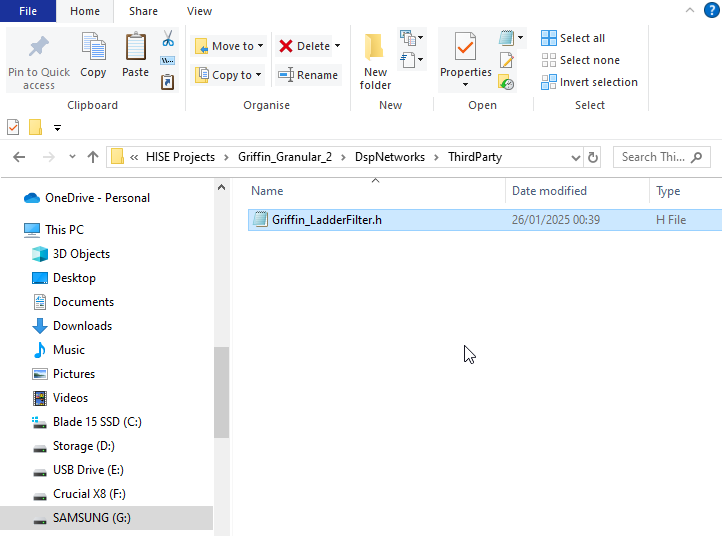
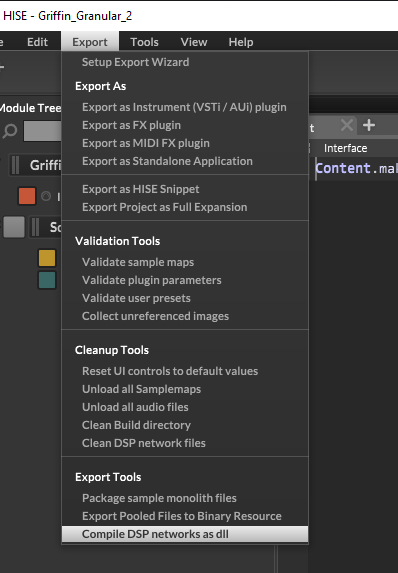
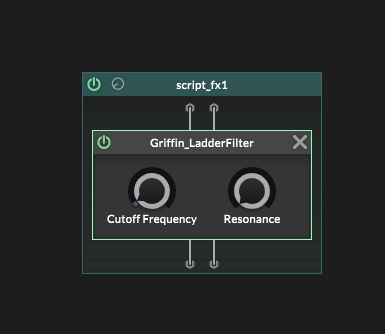
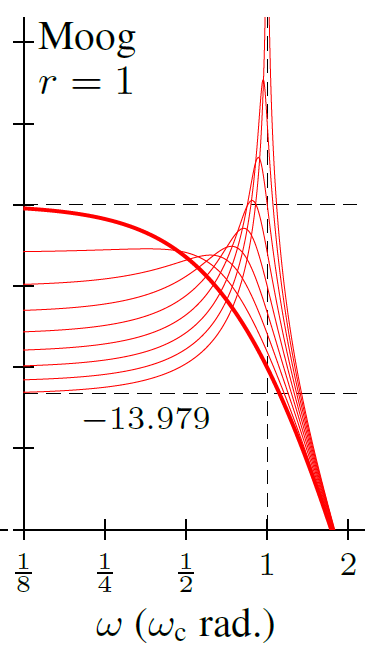
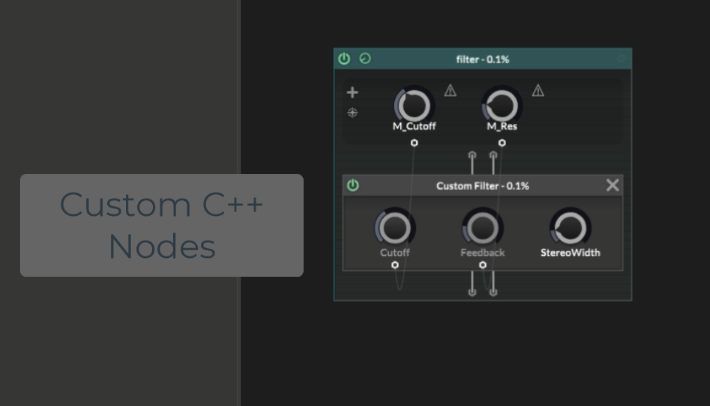


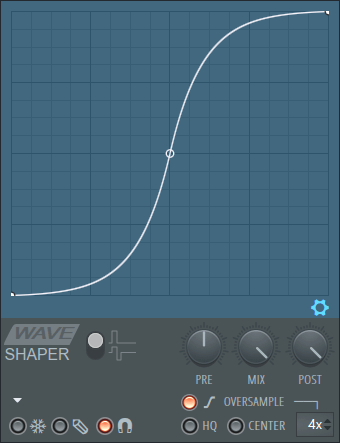
 I will ask
I will ask
